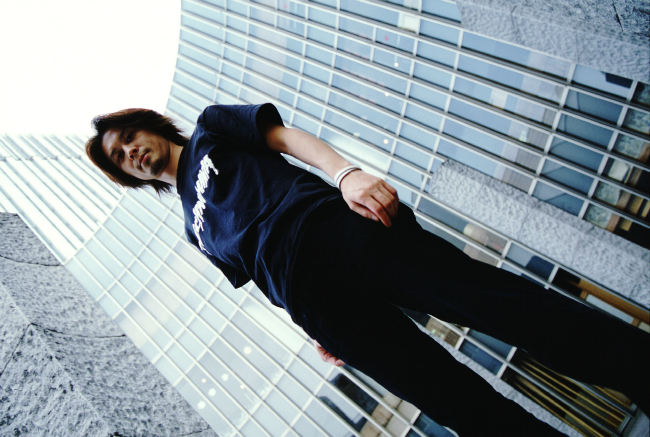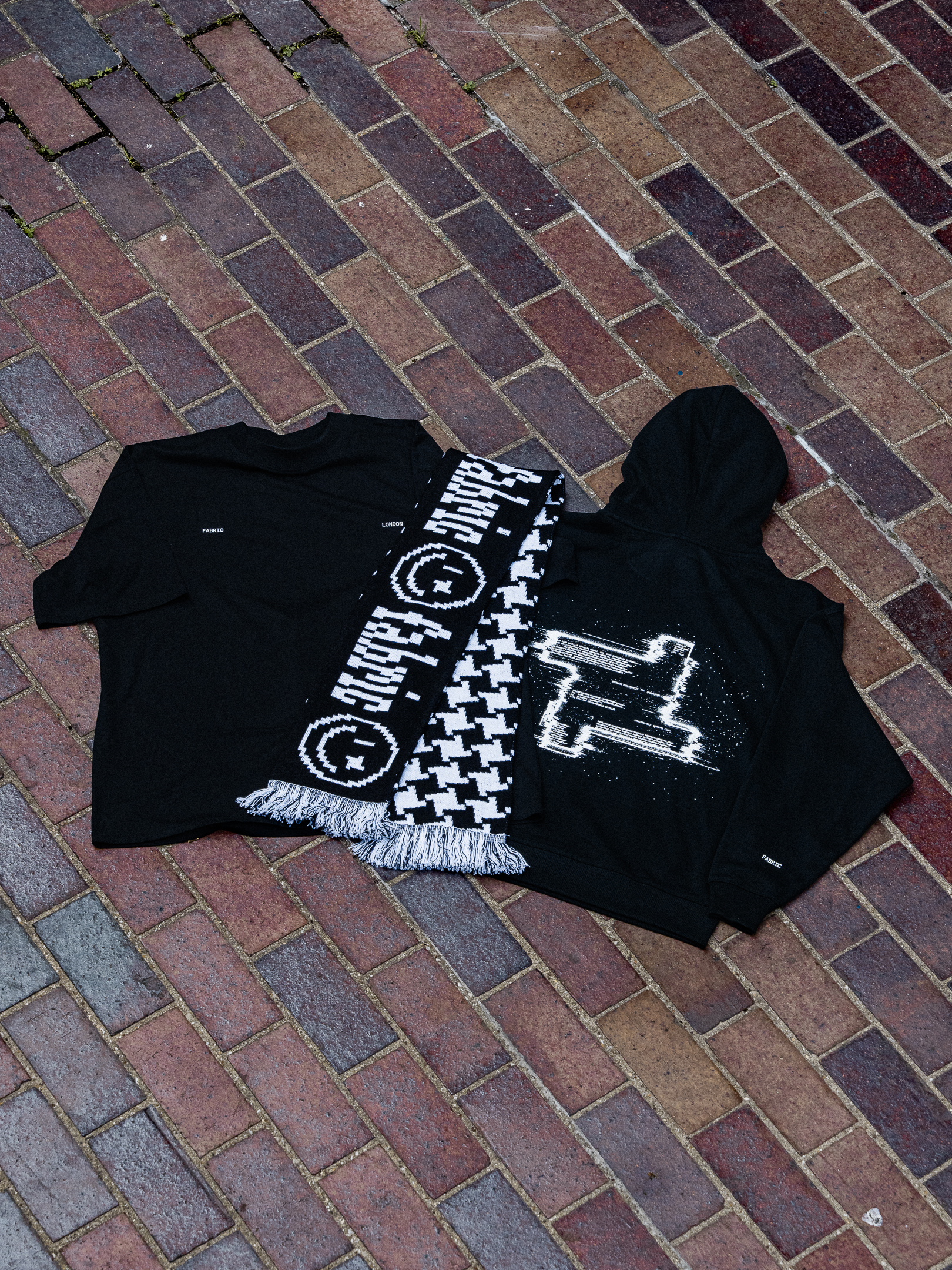News
Introducing... Ken Ishii
 In celebration of 10 Years of Motech this Saturday night, we’ve got the story behind its sound being told by some of its most influential beat makers. Taking the motor city based sound of Motech to Room Two is techno kingpin, Ken Ishii. An R & S compatriot since 1993, Ken has since been heralded a Japanese pioneer of world class sonic sounds. While in 2009-2010, Ken released what have been marked as his seminal albums at the end of this month we await his latest long player, 'Ken Ishii Presents Metropolitan Harmonic Formulas: Music For Daydreams' which is set to drop on Sublime Japan.
Read on to get the full story and we'll see you for Motech's rapid-free rhythms Saturday with founder DJ 3000, Atomic Jam resident Chris Finke and Aril Brikha in a live show of epic proportions.
Can you fill us in on your musical background, back to the beginning of your career how did you come to be a techno producer and DJ?
Yellow Magic Orchestra was my first musical influence. I was 8 or 9 years old and totally attracted by video games like Space Invaders. I got to know the band as one which used the beep sounds of those video games. Then I started checking and following old electronic music bands from late '70's and early '80's. The most favourites were Kraftwerk and Japan. Through a period I got into some EBM/industrial bands like D.A.F., Nitzer Ebb and Ministry etc afterwards, I finally found early Chicago house and Detroit techno. The pioneers of techno, Juan Atkins, Derrick May and Kevin Saunderson were definitely the people that made me decide what I really wanted to do.
Then I started practicing DJing and making my own music when I was 19, in 1989. After two years of progression in producing skills I sent my most favourite techno label at that time, R & S, a cassette tape with my demos. They wrote me back straightaway showing their interest in my music. I sent them more music and they sent me a contract for a double 12" by Fedex. That's how everything started.
At the time it was a European label that took you on? Was that a reflection of a lack of labels at home?
Yes. The techno/dance music scene was very small in Japan at that time. A club called Cave in Shibuya Tokyo was the only place that played techno for its capacity of 200 people. There was no label to push this kind of music at all.
What do you think of today’s R&S artists being one of the originals?
Actually, I don't really know what's going on with them. I just heard the label releases some cool stuff by the new artists. It's nice to know my old home is having a good comeback.
How did your home of Japan influence you?
Lots of people tell me my music sounds like Japan. Even my Japanese fans do. I never intended to use any gimmick of being oriental though, so it must be unconscious. My blood as the Japanese might work.
Where are you situated now, is that somewhere with a lot going on
musically you’re involved with?
I'm based in Tokyo as I have been so far. There is no strong trend going on here right now but we have quite good crowd for all kinds of music styles. Techno is always stable.
You’re as ‘international’ as they come as a touring DJ – what three cities stick out as being your favourite hosts and why?
Barcelona - they know how to party and to get wild with music! Love the city itself too. Gent (Belgium) - it's my second home city, where I made my professional debut as an artist on R & S and they nicely welcome me any time. I frequented it a number of times in the'90's. And, Tokyo - DJs can get top reactions in the clubs! I have toured many countries and can tell it's really one of the best.
What labels are you checking at the moment?
Tronic, Rush Hour, Soundfate, Everysoul
Do you keep it a mix up of classic and contemporary in your sets?
Yes. Almost every time I include a few techno classics. It's a mission as an old school guy!
Can you tell us about your new album? How does it compare to your previous output?
The new album 'Music for Daydreams' is also a debut album of my brand new project for crossover electronic music, called Metropolitan Harmonic Formulas. I would say the music in it is more for daytime and day people. No hard beats, but more jazzy, quiet and experimental approach. I did some collaborations with a saxophonist, pianists, a singer, and so on, as well as I did covers of house music classics such as 'Can You Feel It' and 'A Little Piano'.
What are you currently working on?
Preparation for a live session for this album with a keyboardist Masaki Sakamoto, a collaboration with Marc Romboy, a track contribution for Motech, and some remixes.
In celebration of 10 Years of Motech this Saturday night, we’ve got the story behind its sound being told by some of its most influential beat makers. Taking the motor city based sound of Motech to Room Two is techno kingpin, Ken Ishii. An R & S compatriot since 1993, Ken has since been heralded a Japanese pioneer of world class sonic sounds. While in 2009-2010, Ken released what have been marked as his seminal albums at the end of this month we await his latest long player, 'Ken Ishii Presents Metropolitan Harmonic Formulas: Music For Daydreams' which is set to drop on Sublime Japan.
Read on to get the full story and we'll see you for Motech's rapid-free rhythms Saturday with founder DJ 3000, Atomic Jam resident Chris Finke and Aril Brikha in a live show of epic proportions.
Can you fill us in on your musical background, back to the beginning of your career how did you come to be a techno producer and DJ?
Yellow Magic Orchestra was my first musical influence. I was 8 or 9 years old and totally attracted by video games like Space Invaders. I got to know the band as one which used the beep sounds of those video games. Then I started checking and following old electronic music bands from late '70's and early '80's. The most favourites were Kraftwerk and Japan. Through a period I got into some EBM/industrial bands like D.A.F., Nitzer Ebb and Ministry etc afterwards, I finally found early Chicago house and Detroit techno. The pioneers of techno, Juan Atkins, Derrick May and Kevin Saunderson were definitely the people that made me decide what I really wanted to do.
Then I started practicing DJing and making my own music when I was 19, in 1989. After two years of progression in producing skills I sent my most favourite techno label at that time, R & S, a cassette tape with my demos. They wrote me back straightaway showing their interest in my music. I sent them more music and they sent me a contract for a double 12" by Fedex. That's how everything started.
At the time it was a European label that took you on? Was that a reflection of a lack of labels at home?
Yes. The techno/dance music scene was very small in Japan at that time. A club called Cave in Shibuya Tokyo was the only place that played techno for its capacity of 200 people. There was no label to push this kind of music at all.
What do you think of today’s R&S artists being one of the originals?
Actually, I don't really know what's going on with them. I just heard the label releases some cool stuff by the new artists. It's nice to know my old home is having a good comeback.
How did your home of Japan influence you?
Lots of people tell me my music sounds like Japan. Even my Japanese fans do. I never intended to use any gimmick of being oriental though, so it must be unconscious. My blood as the Japanese might work.
Where are you situated now, is that somewhere with a lot going on
musically you’re involved with?
I'm based in Tokyo as I have been so far. There is no strong trend going on here right now but we have quite good crowd for all kinds of music styles. Techno is always stable.
You’re as ‘international’ as they come as a touring DJ – what three cities stick out as being your favourite hosts and why?
Barcelona - they know how to party and to get wild with music! Love the city itself too. Gent (Belgium) - it's my second home city, where I made my professional debut as an artist on R & S and they nicely welcome me any time. I frequented it a number of times in the'90's. And, Tokyo - DJs can get top reactions in the clubs! I have toured many countries and can tell it's really one of the best.
What labels are you checking at the moment?
Tronic, Rush Hour, Soundfate, Everysoul
Do you keep it a mix up of classic and contemporary in your sets?
Yes. Almost every time I include a few techno classics. It's a mission as an old school guy!
Can you tell us about your new album? How does it compare to your previous output?
The new album 'Music for Daydreams' is also a debut album of my brand new project for crossover electronic music, called Metropolitan Harmonic Formulas. I would say the music in it is more for daytime and day people. No hard beats, but more jazzy, quiet and experimental approach. I did some collaborations with a saxophonist, pianists, a singer, and so on, as well as I did covers of house music classics such as 'Can You Feel It' and 'A Little Piano'.
What are you currently working on?
Preparation for a live session for this album with a keyboardist Masaki Sakamoto, a collaboration with Marc Romboy, a track contribution for Motech, and some remixes.
Tags
No items found.


.jpg)

